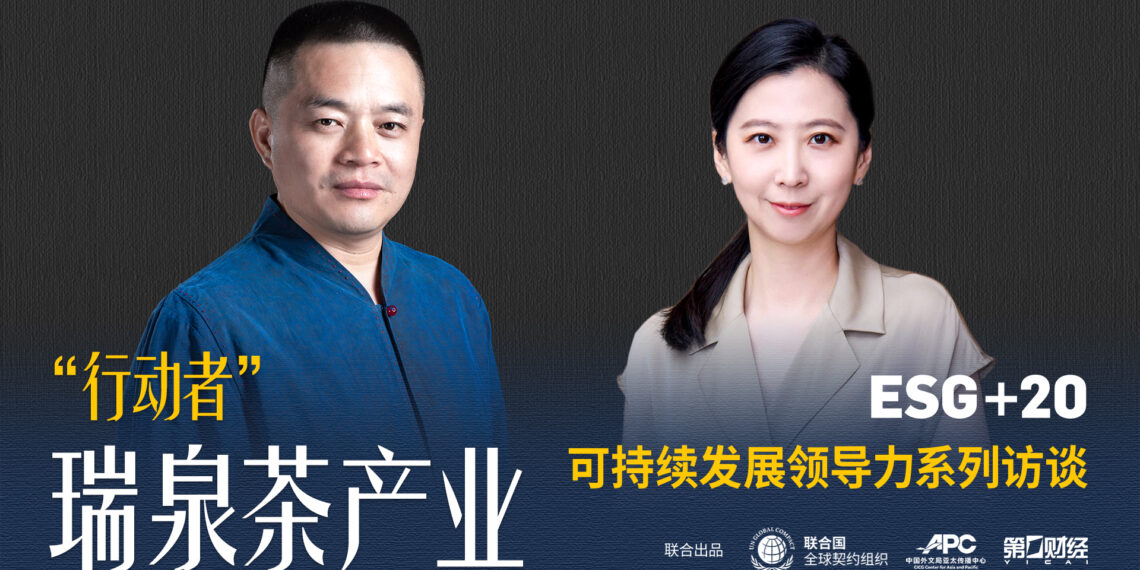Select Language:
October 31 – With the adoption of global environmental, social, and governance standards, the industrial sector has entered a transformative new phase.
Last year marked two decades since the ESG philosophy was introduced. Celebrating this milestone, the United Nations Global Compact, the Center for Asia-Pacific at China International Communications Group, and a prominent financial media outlet partnered to launch the ‘ESG+20 Sustainable Development Leadership Interview Series.’ This initiative aims to highlight the perspectives, achievements,, and leadership efforts of Chinese companies in sustainable development and corporate social responsibility through engaging interviews with Chinese entrepreneurs and site visits.
In this installment of the series, we sat down with Huang Shenghui, chairman of Fujian Ruiquan Tea Industry and curator of the Ruiquan Rock Tea Museum. Ruiquan Tea became a member of the UN Global Compact last year.
Ruiquan Tea is crafted from leaves grown on the Wuyi Mountains in Fujian Province, known as the origins of black tea and oolong tea. The Huang family’s tea-making heritage spans over three centuries, and the brand name ‘Ruiquan’ has been handed down through 12 generations. “Tea is in our blood,” Huang stated.
He explained that modern technology has significantly benefited the tea industry—not only by boosting production but also through precise analysis of tea components, which enhances quality and maximizes value.
Technology enhances the industry by improving production efficiency and ensuring superior quality. “We conduct extensive research, including soil analysis, ecological studies, and technological research on seedlings,” Huang shared.
Advanced tools can identify the various compounds in tea and assess its quality. Huang pointed out that while a seasoned taster might sense a floral aroma like orchids when tasting tea, modern technology can detect 168 different aroma compounds—something beyond human perception.
For modern tea industry operations, maintaining quality remains a top priority, Huang emphasized. Over his 20-plus years managing the enterprise, he has focused on ecological management—soil preservation and environmental protection—and has accumulated valuable resources for tea cultivation.
Another critical aspect is cultivating a cultural heritage around tea, Huang said, because value is rooted in culture. In the core production zone of Wuyi rock tea, he established the country’s only private rock tea museum.
He underscored the importance of protecting the more than 300 existing oolong tea varieties and creating new high-quality cultivars in the future. “This approach will help rural communities by creating wealth through tea and delivering greater benefits to farmers,” Huang explained.
Ruiquan Tea actively collaborates with universities and research institutions to develop new tea varieties and sustainable ecological practices, Huang added.
The company is also developing a Ruiquan Cultural Expo Park spanning over 56,000 square meters, which will showcase the rich, thousand-year-old tea culture through innovative technologies like artificial intelligence.
“Businesses should prioritize long-term social and ecological values, not just immediate economic gains, and shoulder enduring responsibilities for the environment and society,” Huang concluded.






